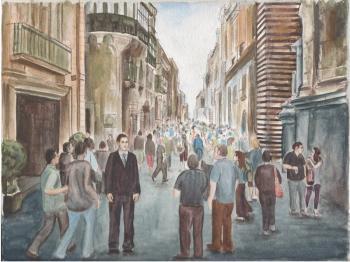From ‘A Song for Saint Cecilia’s Day’
From harmony, from heavenly harmony, This universal frame began: When nature underneath a heap Of jarring atoms lay, And could not heave her head, The tuneful voice was heard from high, ‘Arise, ye more than dead!’ Then cold, and hot, and moist, and dry, In order to their stations leap, And Music’s power obey. From harmony, from heavenly harmony, This universal frame began: From harmony to harmony Through all the compass of the notes it ran, The diapason closing full in Man.
In the beginning was the Word. Or should that be Music? In John Dryden’s song, it is the power of a “tuneful voice” that plucks life and delight from primal chaos. Yet his song is dedicated to St. Cecilia, the patron saint of musicians who sang in praise of God as she lay dying. The contrast implies that, from cradle to grave, music provides us with intimations of divine harmony.How could we survive without it? Dryden tells us the story of the universe before the first delicious notes. It was merely a “heap/ Of jarring atoms” and nothing more. Everything was untuned, unstrung, unformed. Atoms lay about higgledy-piggledy, burying nature under an avalanche of mess. But with a merry toot, everything changed. The universe perked up, picked up, danced.





